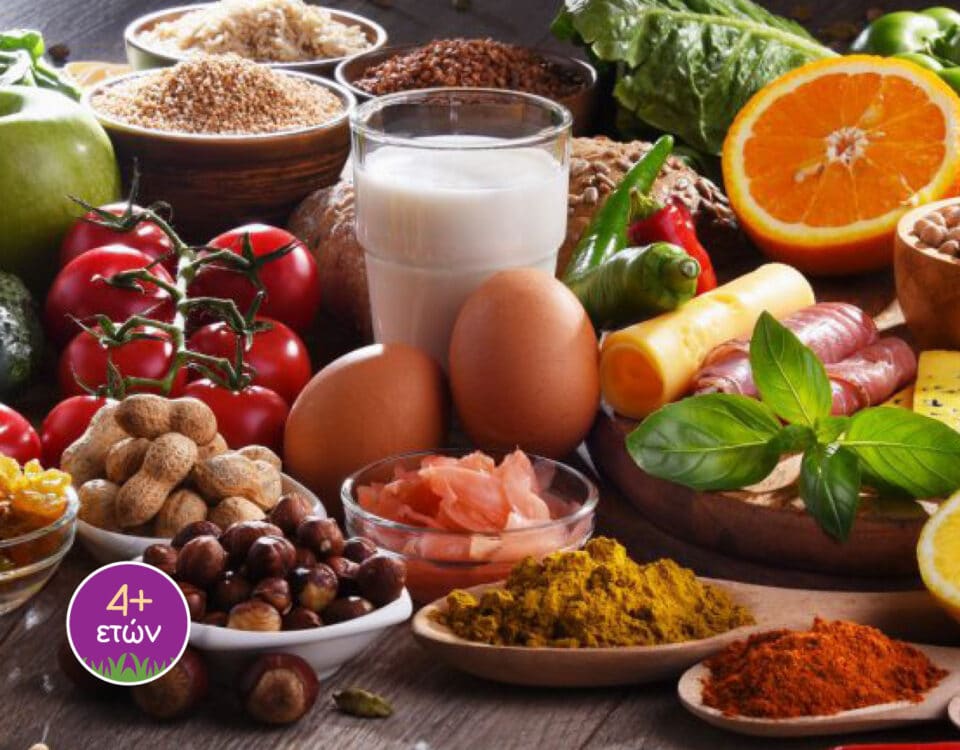
Kids breakfast: make it delicious but nutritious too!
September 30, 2020
The reason kids yogurts is the ideal snack for children
December 22, 2020Does milk help a child to grow taller?


It may be a concern for most parents, but if there was a magic food that helps a child gain height then I guess…we would all be much taller by now! Milk, however, is one of the foods that actually contains basic ingredients that help your child grow at its maximum height.
Show me your parents and I’ll show you how much you will grow!
The truth is that the maximum potential height for a child is determined by genetics. A diet rich in nutrients is, however, essential for achieving the maximum height that your child’s genes have determined for it. Such an ingredient which is also contained in milk is high organic value protein, vitamin A, vitamin D and calcium.
What is the role of milk’s nutrients?
One glass of milk (250mL) provides to a school-age child 30% of the protein, 21% of the vitamin D and ¼ of the vitamin A and the calcium of the necessary daily intake!
- Calcium in particular is the structural component of bones without which a child’s skeletal growth is not possible.
- Vitamin D on the other hand, is working in harmony with the calcium to increase its absorption by the human body while more and more studies keep revealing its multidimensional role in child growth.
- What you must know about vitamin Αis that it is associated with cell proliferation processes in general, including bone cells, let alone during child growth stages.
- Proteinis required for tissue growth which is rapid during childhood. Animal protein in particular, as a high organic value protein, is more effective, while it has been found that milk protein positively affects bone growth regardless of other dietary factors!
Are there any more findings?
Despite the methodological challenges in scientifically answering the question of whether milk actually helps height growth, it has been observed through some studies that during childhood and adolescence, those who drink or drink more cow’s milk, compared to those who do not drink or drink less cow’s milk, are 1.5-2.5 cm taller. For example, a study that monitored the growth of girls before menarche and for 7 years, revealed 2.5 cm greater height for those who consumed 3 glasses of milk compared to those who consumed <1 glass daily. The result was mainly related to milk protein.
It is also interesting to look at studies that have shown that those who drink milk have higher IGF-1 hormone concentration (insulin-like growth factor) in their blood. This is a hormone that our body produces naturally during the rapid development stages while exogenous administration of IGF-1 is also used by doctors in order to “treat” height-related issues. So despite that fact that we haven’t yet found “how”, it seems that there is something in milk that signals our body to produce more of this hormone! Similar findings have also been produced for the growth hormone which is also responsible for cell proliferation during growth.
It is worth noting that, apart from height, the mechanism described above, as it is natural during a child’s development stages, also helps with weight gain. It has been observed, however, that excessive weight or rapidly increasing weight during infancy and preschool age as well as the first primary school years, may lead to precocious puberty and result in potentially lower adult height than the maximum height determined by the child’s genes. As a result, it is important to provide the recommended milk and dairy intake (3 servings daily from the ‘milk, yogurt or cheese’ food group) but avoid over-eating (including over-eating of dairy) to ensure that the child maintains a healthy weight in order to achieve its maximum potential height.
To sum up
There is no food that magically helps you lose or gain weight, so there is no food that magically helps a child grow taller! For a realistic perspective on how things work, you must put genes into the picture. Beyond this reality, what you can do is care for your child’s general health: a sufficient and nutritious diet and regular physical activity. In any case, children must be raised in a way that they learn how to love and appreciate their body (and height!).
Indicative bibliography
- Institute of Medicine; Food and Nutrition Board; Panel on Micronutrients; Subcommittees on Upper Reference Levels of Nutrients and of Interpretation and Use of Dietary Reference Intakes; Standing Committee on the Scientific Evaluation of Dietary Reference Intakes, Dietary Reference Intakes for Vitamin A, Vitamin K, Arsenic, Boron, Chromium, Copper, Iodine, Iron, Manganese, Molybdenum, Nickel, Silicon, Vanadium, and Zinc (2001) & Dietary Reference Intakes for Calcium, Phosphorus, Magnesium, Vitamin D, and Fluoride (1997)
- Morency ME, Birken CS, Lebovic G, Chen Y, L’Abbé M, Lee GJ, Maguire JL, Association between noncow milk beverage consumption and childhood height. Am J ClinNutr. 2017 Aug;106(2):597-602.
- Tomoo Okada, Effect of cow milk consumption on longitudinal height gain in children, The American Journal of Clinical Nutrition, Volume 80, Issue 4, October 2004, Pages 1088–1089
- USDA National Nutrient Database for Standard Reference Legacy Release, April 2018
- Berkey CS, Colditz GA, Rockett HR, Frazier AL, Willett WC. Dairy consumption and female height growth: prospective cohort study. Cancer Epidemiol Biomarkers Prev. 2009 Jun;18(6):1881-7.

|
Ms Christina-PolinaLambrinou |






